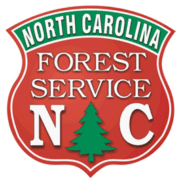NCDA&CS Soils Lab Now Accepting Predictive Samples
100.1 FM ~ 1450 AM ~ WIZS, Your Community Voice ~ Click to LISTEN LOCAL
-Press Release, NC Cooperative Extension, Granville County Center
The soil testing lab at the Department of Agriculture and Consumer Services has announced that the lab is again accepting predictive soil samples on a limited basis. Farmers, gardeners and homeowners are now able to submit soil samples for analysis. There currently is no charge for this service.
“We are very happy to be able to get soil analysis results to work with,” said Paul Westfall, County Extension Director. “We can once again make fertility recommendations tailored to the soil conditions and use. In other words, growers can add the right amount of lime and/or fertilizer and avoid under or over fertilizing.”
Plant growth is delayed by under-fertilization, and over-fertilization leads to wasted nutrients and money and can impact water quality.
Sample kits are available at the Granville County Center of NC Cooperative Extension. Kits can be picked up from a table located in the foyer area of the front door, and samples to be submitted can be left on the same table. Information sheets are available and should accompany each sample submitted. Each sample should be identified in a way that the landowner will remember. Crop information is key to getting a good recommendation. If growers have questions about completing the information sheet, they should contact the Granville County Extension Center.
“Since the lab is operating under reduced hours and reduced staff in compliance with safety recommendations, it will take a bit longer than usual to get test results,” Westfall added. “We have already submitted a few samples, and the results were returned in about three weeks. That’s not too bad.”
For more information on soil samples and soil fertility, contact the Granville County Extension Center at (919) 603-1350, or contact Westfall by email at paul_westfall@ncsu.edu.



